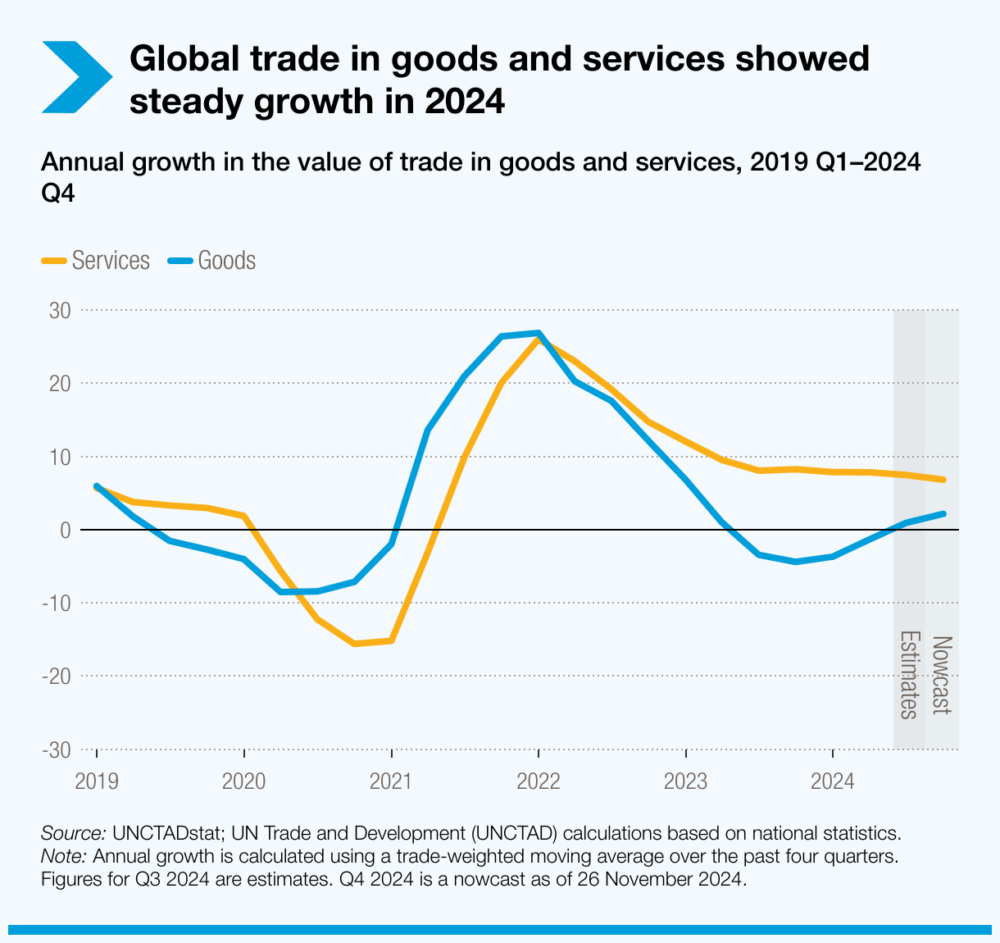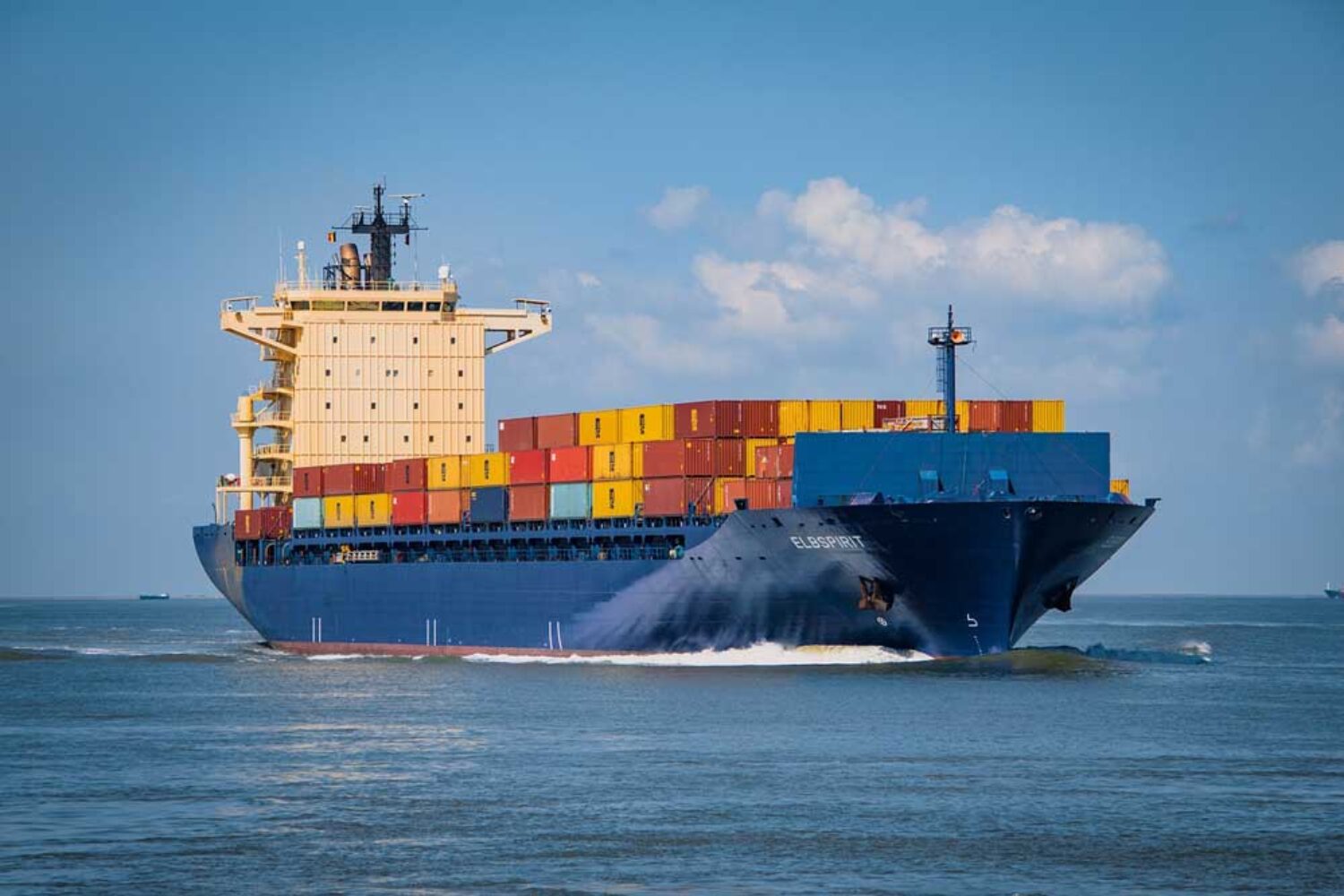Global trade will reach an unprecedented volume in 2024: The UN Conference on Trade and Development forecasts a record US$33tn.
Compared to the previous year, the volume has risen by another US$1tn, which corresponds to growth of 3.3%.
The data is taken from the latest Global Trade Update recently published by the UN Conference on Trade and Development (UNCTAD). The volume illustrates the resilience of global trade despite ongoing challenges.
In the shipping industry, these were evident this year, among other things, in the crisis in the Red Sea caused by attacks on merchant ships by Yemeni Houthis – most recently they also threatened German shipping companies. As a result, many ships had to take a detour via South Africa – leading to congestion in the major ports.
Trade in goods remains below peak level
As reported by UNCTAD, half of the increase was due to growth in trade in services, which rose by 7% this year. Although trade in goods also grew by 2%, it fell short of its 2022 peak.
Developing economies, traditionally strong drivers of global trade, suffered a slight loss this year. Imports in the third quarter fell by 1% and South-South trade by the same percentage. In contrast, industrialised countries led growth in the third quarter, with stable demand resulting in a 3% increase in imports and a 2% increase in exports.

Despite these challenges, developing countries still have opportunities to capitalise on high-growth sectors. UNCTAD sees stable growth forecasts and declining inflation, which means good prospects for 2025. Developing countries should take targeted measures to promote trade diversification.
“Trade remains a cornerstone of sustainable development,” said UNCTAD Secretary-General Rebeca Grynspan. “To seize the opportunities of 2025, developing countries need coordinated support to manage uncertainties, reduce dependencies and strengthen their links to global markets.”
Influence of the USA on global trade
Despite the record growth in global trade, UNCTAD also warns of the risks of trade wars and ongoing geopolitical conflicts. Both contribute to a certain degree of uncertainty, particularly with regard to the USA and Donald Trump’s second presidency.
“The trade outlook for 2025 is clouded by potential changes in US policy, including broader tariffs that could disrupt global value chains and affect key trading partners,” UNCTAD said in a statement.
The countries most affected by changes in US trade policy are likely to be those that have large trade surpluses with the country and higher tariff barriers. Based on figures for trade in goods in 2023, UNCTAD expects this to include China (around US$280bn trade surplus), India (US$45bn), the European Union (US$205bn) and Vietnam (US$105bn).













